China's electric vehicle makers race for Southeast Asia market share
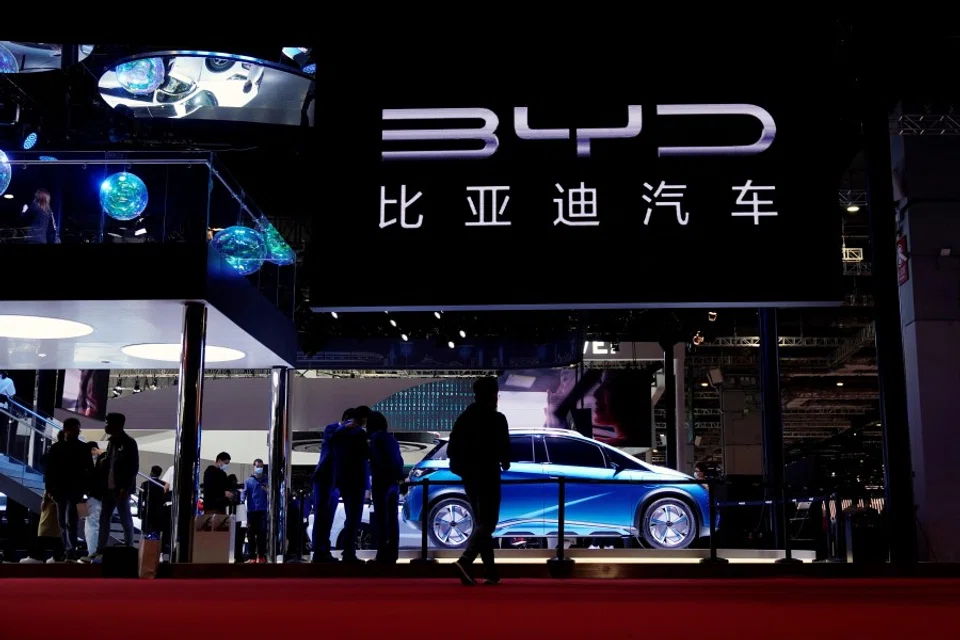
For many middle-class families, a car is a big-ticket purchase requiring careful consideration. This was indeed the case for Eric Lim, a 32-year old recruiter, who needed to meet the growing transportation needs of his family of four. It took three showroom visits before he finally bought his first electric vehicle (EV) from a Chinese brand - joining a tiny minority of car owners in Singapore.
A nascent market
Southeast Asia's EV market is about to enter a phase of rapid growth. According to market research firm Mordor Intelligence, the ASEAN EV market was valued at US$500 million in 2021, and is expected to grow more than fivefold to US$2.6 billion by 2027.
Yet the market is still nascent. Data from Singapore's Land Transport Authority show that as of this May, only 6 out of 1,000 private cars in the country are pure EVs.
Among privately registered cars in Singapore, only three Chinese brands feature: BYD, MG - a brand of Chinese state-owned SAIC Motor - and Polestar, a joint venture between Geely and Volvo. As of last December, the three brands have a total local market share of just 0.014% among newly registered non-fuel and non-diesel vehicles, with 228 vehicles.
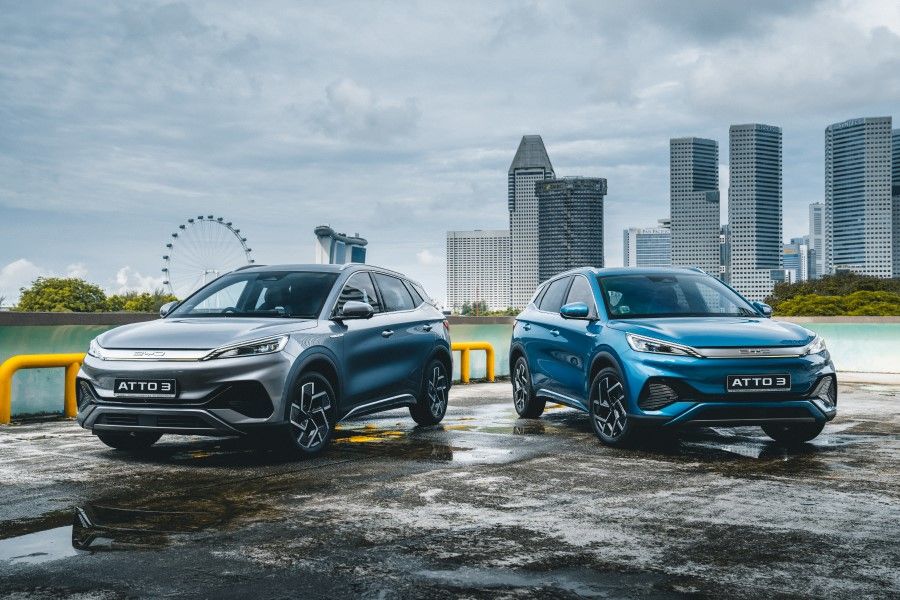
While Singapore's EV market is relatively small, growth has sped up in the past three years. After hovering in the single- and double-digits between 2011 and 2016, the EV population surged to over 1,000 in 2019. Over the past six months, growth has picked up further, with the number rising from 2,942 last December to 4,054 this May.
Chinese automakers jostle for position
As early as eight years ago, Chinese automakers spotted business opportunities in Singapore and began planning their entry. In 2014, Singapore's Agency for Science, Technology and Research (A*Star) signed an agreement with BYD to jointly establish a laboratory and collaborate on developing an EV system for public transport. In 2016, the Go-Ahead Singapore bus group started testing electric buses made by BYD; in 2017, the first fleet of BYD electric taxis started plying the roads.
Since the start of this year, Chinese automakers have made bigger moves in Singapore. After Shanghai-headquartered NIO completed its secondary listing on the Singapore Exchange last month, it announced plans to build an AI and autonomous driving research and development centre in the country. This April, public transport operator SMRT's subsidiary Strides Mobility and China's EV rental platform DST Shenzhen announced an EV services joint venture.
One motivation for Chinese automakers to establish a leading position in Singapore's EV market is to raise brand awareness and challenge the domination of Japanese, South Korean, European and American automakers.
"Singapore's reputation as a leading global city provides 'a branding effect'." - Walter Theseira, Associate Professor of Economics at Singapore University of Social Sciences
Lim previously owned a Japanese fuel car. When he first encountered a Chinese-made electric car three years ago, it changed his impression of Chinese automakers.
That was when his father-in-law began driving a Chinese-brand electric taxi. Lim discovered that Chinese-made vehicles were not of the poor quality he had imagined, and were in fact comparable to Japanese, South Korean, American and European brands in terms of performance and safety, he told Lianhe Zaobao. This favourable impression influenced his purchase decision early this year.
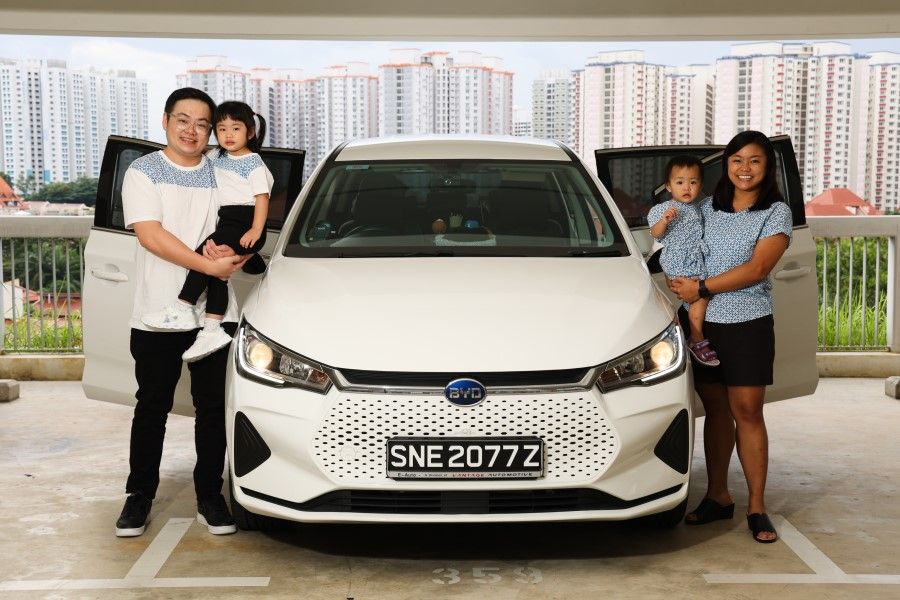
"For Chinese brands, there are fewer reviews in Singapore, so of course I'd be more careful," he said, adding that when he bought his Japanese car, he did so on the spot during his first visit. "This time I visited the showroom thrice and test-drove the car twice before buying," he shared.
Targeting Southeast Asia from Singapore
Academics say that the ultimate goal for Chinese carmakers is Southeast Asia's EV market, which has immense potential - with Singapore merely being the starting point and base for this race.
Tham Siew Yean, a visiting senior fellow at the ISEAS-Yusof Ishak Institute, noted that Chinese EV companies can use Singapore as a test-bed for vehicles they plan to launch in the region.
Singapore's reputation as a leading global city provides "a branding effect", said Singapore University of Social Sciences Associate Professor of Economics Walter Theseira.
BYD said that as a highly advanced economy, Singapore is extremely influential in Southeast Asia - and is key if Chinese automakers want to plant their flag in the regional market.
With Singapore also considered a leader in public policy and innovation, early movers may see an opportunity to shape EV policy here and in the region, he added. Another consideration is that EVs usually target the mid- to high-end market, and only Singapore's level of consumption currently suits this.
But he stressed that Indonesia, Thailand and other larger Southeast Asian countries are where Chinese automakers are truly setting their sights.
In response to Lianhe Zaobao queries, BYD said that as a highly advanced economy, Singapore is extremely influential in Southeast Asia - and is key if Chinese automakers want to plant their flag in the regional market. Singapore's prioritisation of environmental protection also makes for a conducive environment with market potential for EV development.
Global automakers, too, have EV plans across the region. South Korean automaker Hyundai's EV plant in Indonesia began full operations this year. In March, Swedish brand Volvo announced plans to build an assembly plant in Malaysia. Germany's Mercedes-Benz is slated to open an EV assembly plant in Thailand this year.
According to an article in Thailand's Chinese-language Zhonghua Press newspaper last September, SAIC Motor, Great Wall Motor, Chery, Dongfeng, Geely and Changan and other Chinese EV manufacturers are planning to launch new models in Thailand.
"While car manufacturers from Japan, South Korea, Europe and the US dominate the car market in Southeast Asia, they have yet to penetrate the EV segment." - Tham Siew Yean, Visiting Senior Fellow at ISEAS-Yusof Ishak Institute
Malaysian manufacturer Fieldman EV announced a joint venture with Changan Automobile at the start of this year for a new RM1 billion (US$226 million) new EV plant in Melaka. Meanwhile, Geely acquired Malaysia's Proton in 2017 and already has a network of 27 sales locations in the Philippines. This is set to grow to 40 locations by the end of this year - which would put it on the same scale as Toyota, Mitsubishi, Honda and other Japanese brands.
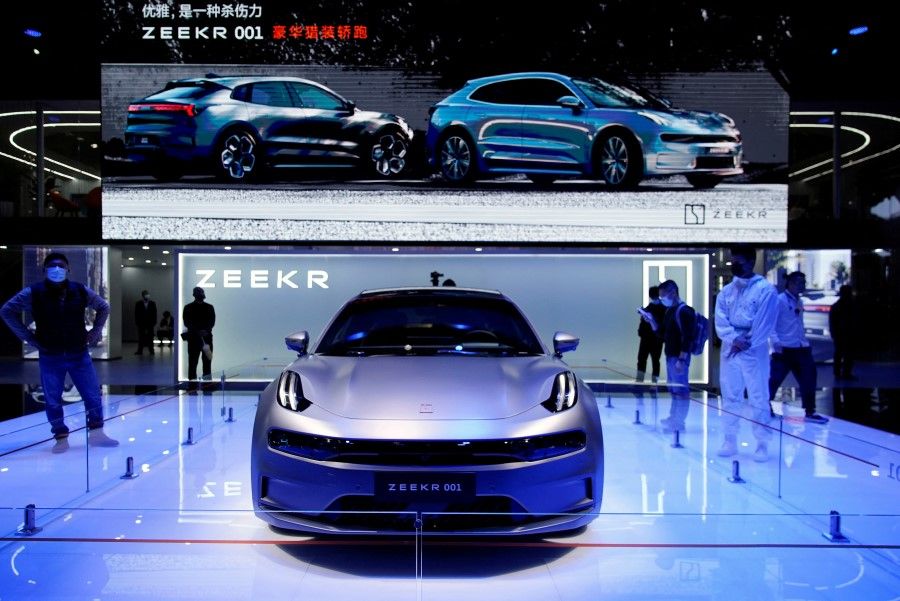
Tham observed that while car manufacturers from Japan, South Korea, Europe and the US dominate the car market in Southeast Asia, they have yet to penetrate the EV segment. As these companies have invested heavily in production facilities for internal combustion engine (ICE) vehicles, they are more inclined to continue using these to produce conventional vehicles.
This leaves the door open for less established automakers from China and other countries to enter the market and build EV plants in the region, especially as they do not have to wait to phase out ICE vehicle production facilities, she added.
Double-edged sword of low prices
Lower prices are the biggest competitive advantage of Chinese EV brands, but could prove a stumbling block in their bid to capture the high-end market.
According to British automotive magazine Autocar, the price of electric cars in Europe has increased by 28% over the past decade, but prices of Chinese ones have fallen by 47%. As of 2021, the average price of a European EV is US$52,000, while that of a Chinese EV is only US$27,000.
"But as consumers in this segment are especially price sensitive, the biggest challenge for Chinese EV makers is maintaining competitive pricing in the face of raw material shortages." - Walter Theseira
Alloysius Joko Purwanto, energy economist at the Economic Research Institute for ASEAN and East Asia, sees the relatively low prices of Chinese EVs as their biggest advantage. He suggested that carmakers work with ride-hailing companies such as Grab and Gojek - and, if they can show that their vehicles are reliable, they could become real competitors to Japanese, South Korean and European brands.
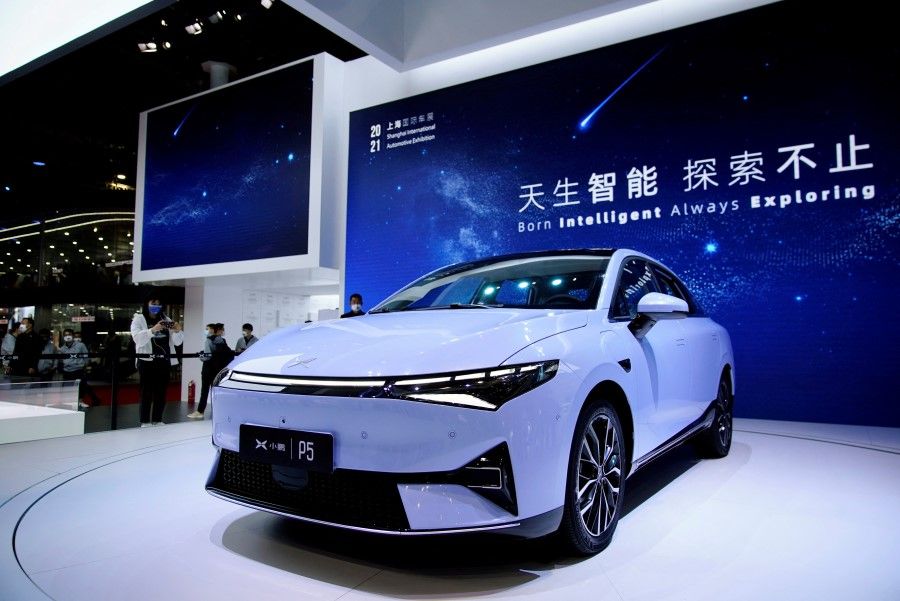
Theseira said that given Southeast Asia's lower overall income level, the biggest market gap is in the lower-priced mass market, where Chinese EV makers have the strongest advantage.
But with the current shortage of raw materials such as lithium, nickel, and cobalt, Chinese automakers are focusing on the premium market where returns are higher, he noted. With the exception of China's domestic market, global carmakers have little interest in the mid to lower end of the market.
In addition to mass-market electric cars, Chinese EV brands could enjoy a significant advantage in the market for electric scooters, said Theseira. Niu Technologies, the market leader for electric scooters in China, made its first foray into Indonesia, Vietnam and other Southeast Asian countries in 2020.
But as consumers in this segment are especially price sensitive, the biggest challenge for Chinese EV makers is maintaining competitive pricing in the face of raw material shortages, he added.
